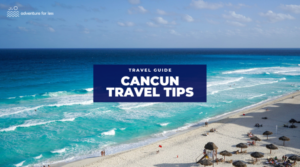Are you ready for your next adventure? But have you thought about the risks of traveling? Exploring new places is exciting, but unexpected events can ruin your trip. That’s where travel insurance comes in.
It’s a key protection for your travels. But how important is it, and what should you know before buying a policy? Let’s find out.
Key Takeaways
- Travel insurance protects you from unexpected events like medical emergencies, trip cancellations, and lost or stolen belongings.
- It provides financial coverage and peace of mind during your travels, ensuring you’re covered in case the unexpected happens.
- Understanding the different types of travel insurance coverage can help you choose the right policy for your trip.
- Factors like trip duration, destination, age, and pre-existing conditions should be considered when selecting a travel insurance policy.
- Travel insurance can be a valuable investment, but it’s important to read the fine print and be aware of exclusions and limitations.
Understanding the Risks of Traveling Without Insurance
Traveling without insurance can lead to many risks. These risks can affect your trip and your money. Knowing these challenges shows why travel insurance is so important.
Medical Emergencies Abroad
One big risk is medical emergencies while traveling. Sudden illnesses or injuries can cost a lot. Travel insurance helps cover these costs, so you can get the care you need without worrying about money.
Lost or Stolen Belongings
Lost or stolen items can ruin your trip and cost extra money. Travel insurance can help replace these items. This gives you financial protection and peace of mind, especially in crowded places.
| Risk | Without Travel Insurance | With Travel Insurance |
|---|---|---|
| Medical Emergencies | Costly hospital bills and out-of-pocket expenses | Coverage for medical treatment and evacuation |
| Lost or Stolen Belongings | Replacement costs and disruption to travel plans | Reimbursement for lost or stolen items |
Getting travel insurance can protect you from these risks. It gives you financial security and peace of mind. This way, your trip can be memorable and worry-free.
Types of Travel Insurance Coverage
Travel insurance comes in many types. Knowing what’s available helps you pick the right policy for your trip. This ensures you’re covered for your specific needs and worries.
Trip cancellation insurance is a common choice. It refunds your money if you have to cancel your trip for reasons like illness or unexpected events.
Emergency medical coverage is vital. It helps pay for sudden medical costs, like doctor visits or hospital stays. It also covers medical evacuations if needed.
Baggage and personal effects coverage protects your stuff. It helps replace lost, stolen, or damaged items while you’re away.
Travel delay insurance covers extra costs from flight delays or cancellations. This includes money for meals, hotels, and transportation.
Travel accident insurance offers protection against accidents or death during your trip. It provides a lump sum or covers medical bills.
Knowing about these coverages lets you pick the best policy. This gives you peace of mind and financial security on your travels.
| Coverage Type | Description |
|---|---|
| Trip Cancellation Insurance | Reimburses prepaid, non-refundable expenses if you need to cancel your trip for a covered reason |
| Emergency Medical Coverage | Provides financial assistance for unexpected medical expenses, including doctor visits, hospital stays, and medical evacuation |
| Baggage and Personal Effects Coverage | Helps replace lost, stolen, or damaged personal items during your trip |
| Travel Delay Insurance | Provides reimbursement for additional expenses incurred due to flight delays, cancellations, or missed connections |
| Travel Accident Insurance | Offers financial protection in the event of an accidental injury or death during your trip |
Understanding travel insurance options helps you choose wisely. This ensures you have the right coverage for your trip. It offers peace of mind and financial security.
Factors to Consider When Choosing a Travel Insurance Policy
Choosing the right travel insurance policy is key to getting the right coverage for you. Think about how long you’ll be traveling, where you’re going, your age, and any health issues you have.
Trip Duration and Destination
The length and location of your trip matter a lot. A quick trip in the US might need less coverage than a long trip abroad. Places with natural disasters or political issues might need extra coverage.
Age and Pre-Existing Conditions
Your age and health can change what insurance you need. Older travelers and those with health issues might pay more or face certain exclusions. Make sure your policy covers you well, especially for medical emergencies.
| Factor | Considerations |
|---|---|
| Trip Duration | Short weekend trips may require less coverage than extended international vacations. |
| Destination | Travel to high-risk areas may warrant additional coverage options. |
| Age | Older travelers may face higher premiums or have specific exclusions. |
| Pre-Existing Conditions | Policies may have exclusions or limitations for pre-existing medical conditions. |
By thinking about these factors, you can pick a travel insurance policy that fits your needs. This way, you’ll have the financial security and peace of mind you need while traveling.
The Benefits of Having Travel Insurance
Travel insurance offers more than just financial protection. It gives you peace of mind. This lets you enjoy your trip without worrying about unexpected events.
Peace of Mind
Travel insurance means you’re covered for unexpected things. It can help with medical emergencies, flight delays, or lost items. This safety net lets you travel without stress.
Financial Protection
It also protects your wallet from unexpected costs. If you need to cancel your trip, it can refund your money. It covers medical emergencies and evacuations too.
Travel insurance also helps with trip disruptions. This includes flight delays, lost luggage, and more. It keeps your finances safe, so you can enjoy your trip.
“Travel insurance is a small price to pay for the peace of mind and financial protection it provides during your trip.”
When to Purchase Travel Insurance
Timing is key when getting the right travel insurance for your trip. Whether it’s a last-minute trip or a well-planned vacation, the best time to buy insurance varies. It depends on your needs and what coverage you need.
It’s best to buy travel insurance as soon as you start planning. This way, you get the most protection. You’ll be covered for pre-existing medical conditions and trip cancellations due to unexpected events.
Pre-Booking Coverage
If you book your trip early, buy insurance at the same time. This way, you’re covered from the start. It protects your investment if there are unexpected changes or cancellations.
Last-Minute Decisions
Even if you plan your trip last minute, you can still get good insurance. Some benefits might be limited, but you can still get protection. This includes medical emergencies, lost or stolen items, and travel disruptions.
| Travel Insurance Timeline | Recommended Timeline | Key Benefits |
|---|---|---|
| Pre-Booking | As soon as you start planning your trip |
|
| Last-Minute | Up to the day before your departure |
|
The best time to buy travel insurance depends on your trip planning and coverage needs. Buying early gives you peace of mind and financial security for your journey.
Common Exclusions and Limitations
Travel insurance policies cover a wide range of things. But, it’s key to know what’s not included. These exclusions can change between insurance companies. They often exclude adventure sports, pre-existing medical conditions, and war or civil unrest.
Adventure Sports and High-Risk Activities
Many policies don’t cover adventure sports and high-risk activities. This includes:
- Extreme sports like bungee jumping, skydiving, or rock climbing
- Watersports such as deep-sea diving or white-water rafting
- Winter sports like skiing or snowboarding off-piste
If you’re planning to do these activities, check your policy. You might need extra coverage or a special policy to be fully protected.
| Exclusion | Description | Example |
|---|---|---|
| Adventure Sports | Activities that involve an increased risk of injury or harm | Bungee jumping, skydiving, rock climbing |
| High-Risk Activities | Recreational pursuits that have a higher probability of accidents or injuries | White-water rafting, off-piste skiing, deep-sea diving |
Make sure to check the policy limitations and travel insurance exclusions before buying. This way, you know your activities are covered.
“Understanding the exclusions and limitations of your travel insurance policy is crucial to avoid any gaps in your coverage.”
Tips for Filing a Travel Insurance Claim
If you need to file a travel insurance claim, it’s important to do it right. Knowing what to do and what you need can help a lot. This way, you can get your claim settled quickly.
Here are some tips to help you:
- Review your policy requirements: Look at your policy to see what you need for your claim. This might include receipts, proof of purchase, and details about what happened.
- Gather necessary documentation: Get all the documents you need, like travel plans, medical records, and police reports if needed. These help with your travel insurance claims.
- Submit the claim promptly: Send in your claim to your insurance company fast. Make sure you meet any policy requirements for filing a claim on time.
- Communicate effectively: Keep in touch with your insurance company. Give them any extra info or answers they ask for to speed up the claim process.
- Organize your records: Keep track of all your talks with your insurance company. This makes it easier to see how your travel insurance claims are going and solve any problems.
By following these tips and knowing what your documentation and policy requirements are, you can handle your travel insurance claims well. This increases your chances of a quick and successful outcome.
| Claim Requirement | Description |
|---|---|
| Proof of Purchase | Receipts, booking confirmations, or other proof of what you spent on your trip. |
| Incident Reports | Police reports, medical records, or official documents about what happened. |
| Detailed Explanation | A clear explanation of what happened, including any important details or background. |
“Filing a travel insurance claim can be a daunting task, but with the right approach and attention to detail, you can navigate the process with confidence and ensure a successful resolution.”
For a good travel insurance claims experience, know your policy, get the right documentation, and talk well with your insurance company. These steps help protect your money and let you relax on your trips.
Conclusion
Travel insurance is a key protector, offering great security and peace of mind on your travels. It helps you understand risks and coverage options. This way, you can make smart choices and protect your travels and investments.
Travel insurance is essential whether you’re going abroad or exploring your own country. It lets you enjoy your trip without worry. With this coverage, you can make lasting memories, knowing you’re safe from unexpected events.
When planning your next trip, look into travel insurance’s wide range of protection. This step can change your travel experience from stressful to enjoyable. By valuing travel insurance, you can start your adventures with confidence and preparation.







